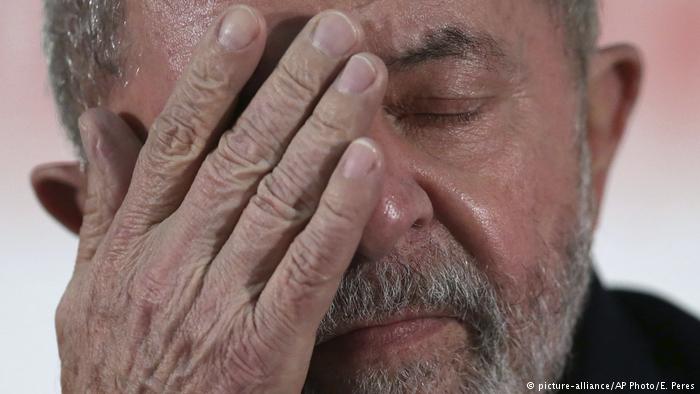
Deutsche Welle, Yoani Sanchez, 6 April 2018 — A few years ago, the socialism of the 21st century, that populist imitation that deftly disguised itself with a discourse of social justice and opportunities for all, seemed to be in full force in Latin America. The region was dotted with leaders who resembled something more than the ideology they embraced: they loved to hear themselves speak in public, they suffered from a chronic intolerance of political opposition and they believed they embodied the feeling of an entire nation.
That motley explosion of charismatic and authoritarian leaders ranged from the vociferous Hugo Chávez, to the arrogant Rafael Correa, the coca grower Evo Morales, and the popular Luiz Inácio Lula da Silva. The latter was described as having emerged from the most humble strata of Brazilian society and, once in Planalto Palace, to have promoted changes to lifting more than 30 million people up from poverty. With these credentials, it was difficult not to applaud him and many international organizations fell at the feet of the steelworker become president.
However, behind the image of an austere man and implacable enemy of political corruption, Lula was creating his own networks of favors and support to which he responded with privileges and perks. The Workers’ Party became a more powerful force every day, one that harassed its political opponents, supported untenable regimes like that of Cuba and was constantly accused of diverting funds and mismanagement. However, Lula maintained his impressive popularity in Brazil and almost unanimous support beyond its borders.
Now, the former trade unionist seems to be coming to the end of his road. Last year he was convicted of corruption and money laundering and this month the Supreme Court rejected the last legal recourse to stop his imprisonment. Although the seasoned populist still draws crowds and leads the polls for the October elections, on his last tour of Brazil eggs were thrown and taunts shouted.
Cornered, the former president has chosen to to keep running forward. He has redoubled his discourse to the popular classes and has presented the whole judicial process in which he is immersed as an attempt to silence him politically or as a revenge of the elites and his old ideological adversaries. Others, however, accuse him of running for president to elude justice. Despite this attack from the podiums and from the media, it has not managed to prevent the myth from suffering major cracks.
With the conviction of Lula, part of the illusion that he fueled also falls, that of a leader who rises from below, who understands the poor, who will never steal from them. His fall from grace is also a blow to the left’s populist forces in the region, many of them tarnished by corruption scandals linked to the extensive maneuvers of Brazilian giant Odebrecht.
The socialism of the 21st century was not only killed by its own inefficiency in finding solutions to the serious problems of the continent, but by its dirty financial management. Their most distinguished representatives encouraged networks of loyalties and bribes that ended up taking their toll. The coup de grace was not “the empire” so much reviled, nor the “bourgeoisie,” but their own ambition.
